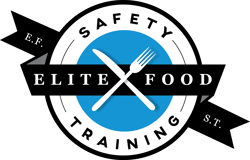Discover the key differences in training requirements for managers versus food handlers to ensure compliance with food safety regulations.
Manager's Training Requirements
Managers in the food industry play a critical role in ensuring the safety and quality of the food served to customers. As such, their training requirements are more extensive compared to food handlers. Managers are typically required to undergo a comprehensive food safety training program that covers topics such as proper food handling techniques, sanitation practices, and hazard analysis critical control points (HACCP). This training equips managers with the knowledge and skills necessary to oversee food safety practices in the establishment.
Our ServSafe Manager's Certification Training is an 8-hour course, which includes the examination. Our comprehensive course is designed to equip managers and food service workers like yourself with the necessary skills to protect the public from foodborne illnesses. Rest assured that this certification is valid in all 50 states and remains active for 5 years.
Food Handlers Training Requirements
Food handlers, on the other hand, are individuals who directly handle food during preparation, cooking, or serving. Their training requirements focus on basic food safety principles, such as personal hygiene, cross-contamination prevention, and temperature control. Food handlers are usually required to undergo a shorter training program that covers these fundamental concepts to ensure the safe handling of food.
TAP Series Food Handler Card is a short online course that is a great tool for all food delivery services that interact with food. In this series, you will learn the basic tools of handling food safely without the in-depth material necessary for managers and chefs. This course takes approximately one hour to complete and, upon successful completion, provides a printable food handler certificate. This certificate is good for up to three years.
This course is not to be taken to prepare workers for the Manager's Certification.
Training for food handlers may also include specific instructions on how to properly clean and sanitize work areas, store food correctly, and respond to food safety incidents.
Importance of Ongoing Training
Ongoing training is crucial for both managers and food handlers to stay updated on the latest food safety regulations and best practices. Continuous education and training help individuals in the food industry adapt to changes in food safety standards, technology, and consumer preferences. Regular training sessions also reinforce the importance of food safety and encourage a culture of compliance within the establishment.
By investing in ongoing training for managers and food handlers, businesses can mitigate the risks of foodborne illnesses, maintain a positive reputation, and protect their customers.
Training Delivery Methods
Training for managers and food handlers can be delivered through a variety of methods to accommodate different learning styles and preferences. Some common training delivery methods include in-person workshops, online courses, on-the-job training, and video tutorials. Employers should choose the most effective delivery method based on the needs of their staff and the complexity of the training material.
Interactive training sessions, hands-on demonstrations, and quizzes can enhance the learning experience and ensure that individuals retain the information effectively.
Certification and Compliance
Upon completing their training requirements, managers and food handlers may need to obtain certification to demonstrate their competency in food safety practices. Certification programs are often offered by accredited organizations and require individuals to pass an exam to prove their knowledge and skills. Maintaining certification is essential for compliance with food safety regulations and may be a requirement for employment in the food industry.
Employers should regularly review their staff's certifications to ensure that everyone remains up-to-date and compliant with the latest food safety standards.

.png)
.png)
-2.png)
-2.png)
.jpg)
